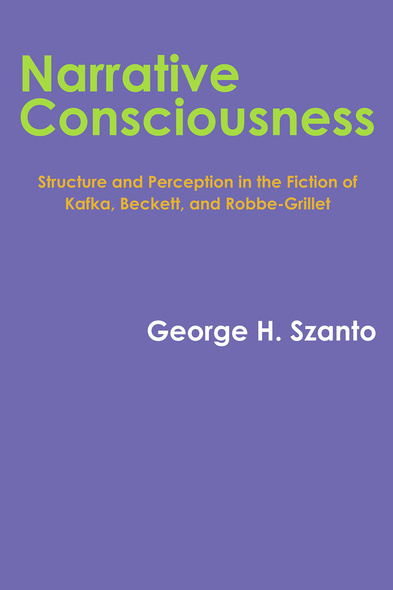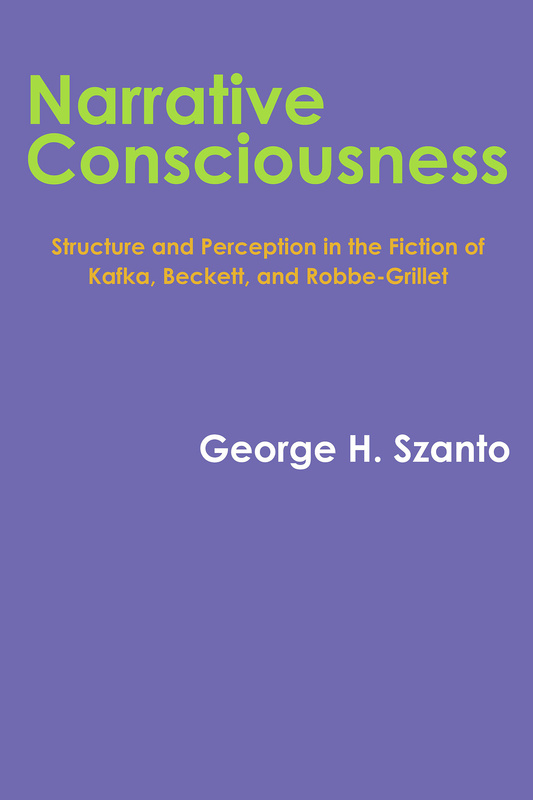Our shopping cart is currently down. To place an order, please contact our distributor, UTP Distribution, directly at utpbooks@utpress.utoronto.ca.
Narrative Consciousness
Structure and Perception in the Fiction of Kafka, Beckett, and Robbe-Grillet
Comparatively little critical attention has been devoted to narrative technique in modern fiction, and formal analysis of the work of Kafka, Beckett, and Robbe-Grillet in particular has for the most part been limited to short studies in journals, many of these in languages other than English. The criticism written in English has dealt primarily with theme with metaphysics and myth and ignored structure and style.
Yet it is structure and style that offer the reader a way into the often bewildering and disturbing fictional worlds these three writers present. The problem confronting writers since the middle of the nineteenth century has been how to cope artistically with an increasingly alienating and mechanized world. As George Szanto sees it, Kafka, Beckett and Robbe-Grillet conclude, by the example of their fictions, that the writer's province is no longer this impossible environment. Instead, the writer must work within the only knowledge available to any one person: the knowledge attained through perceptions. The proper study for a storyteller is thus the search for the unique details, the describable perceptions a person chooses from the outside world and brings into their mind, which in the end define their nature. The shape of the story is determined by the narrating consciousness, that single character through whose awareness the details are filtered. Thus, in a very special sense, the tale and the telling are one.
Szanto's meticulous and thoughtful study of the major fiction of Kafka, Beckett, and Robbe-Grillet searches out these details and examines the manner in which each author, through the minds of his characters, has selected and ordered them. His structural approach not only leads the reader directly into the works under scrutiny, but also provides an understanding of the workings of the art itself.
In the appendices, the author surveys the different ways in which criticism has treated these three writers. His extensive bibliography provides a valuable research tool.
- Introduction: Narrative Consciousness
- Part I: Kafka
- 1. The Inevitability of Ritual: Life Cycle of a Kafka Character
- 2. A Derivation of Meaning from Point of View
- Part II: Beckett
- 3. The Form of Consciousness: Modified Patterns
- 4. The Dominance of Point of View
- Part III: Robbe-Grillet
- 5. Toward a New Novel: A Theory for Fiction
- 6. Internalized Reality: The Subjective Point of View
- 7. Structure as Process: The Temporal Point of View
- Conclusion
- Conclusion: A Third Way in Modern Fiction
- Appendixes
- 1. Kafka in France
- 2. Kafka Criticism
- 3. Beckett Criticism
- Bibliography
- Index





